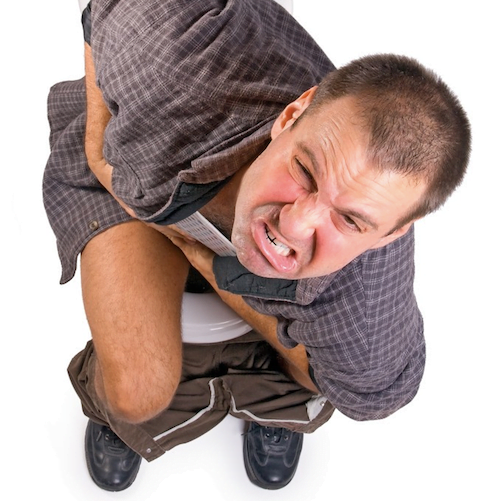Tips to avoid constipation
Constipation involves hard dry stools causing difficulty when defecating, bloating and abdominal and rectal discomfort. If you experience any unusual changes with your bowel functioning, especially if linked to unaccustomed rectal bleeding, weight loss, breathlessness and fatigue, you should consult your doctor.
Otherwise, this page will provide some evidence-based advice aimed at preventing chronic constipation, a condition which is associated with a number of issues including:
- Fatigue & apprehension
- Irritability & increased arguments with partners
- Reduced libido
- Feeling less attractive to the opposite sex
- Embarrassment caused by associated flatulence
Causes of constipation
Everybody experiences constipation from time to time, but if it becomes a recurring problem, you need to consider lifestyle strategies and if these fail, a laxative as a last resort. In addition to short-term disruptions to an individual’s daily diet and physical activity, constipation can also be caused by:
Medication – Anti-sickness medication such as ondansetron and granisetron; pain-killers such as codeine, tramadol and morphine; and iron tablets, can all disrupt the normal function of the bowel.
Conditions affecting the anus – Haemorrhoids or anal fissures can make it painful to defecate and lead to constipation
Ignoring the call to stool – Sometimes people get into the habit of ignoring the call to stool, particularly when experiencing stress, leading to constipation
Bowel muscles weakness – Being frail, recent abdominal surgery, or neurological conditions such as paralysis, dementia, Motor Neurone Disease and Parkinson’s disease, can all weaken the bowel muscles and lead to constipation
Preventing & treating constipation
Despite the frequency of this complaint, it’s often only addressed when it becomes a significant problem. Prevention is always better if possible. With some foresight, constipation can be anticipated and appropriate action taken to avoid it. The following tips are all viable ways to reduce the chances of developing constipation:
- Eat plenty of fibre (bran, prunes, raisins, cereals, leafy vegetables)
- Eat a tablespoon of ground linseeds every day
- Eat plenty of fruit and berries
- Drink plenty, but not excessive, quantities of water
- Have a regular routine in the morning
- Try not to ignore the call to open your bowels. If you need to go – go!
- Take your time on the toilet and try to stay until you have a good result
- Exercise regularly – it reduces the time a stool takes to pass
- Avoid constipating medications if possible (codeine, opiates)
- Take a note of which activities constipate you
- Prevention is better – anticipate constipation and consider dietary changes first
- If starting medications which cause constipation, increase fibre intake
- If necessary, use ointments or suppositories to relieve a painful anus
.

